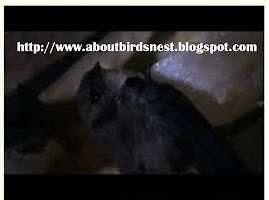Birds’ nest has been used for a long time in traditional Chinese medicine for many centuries. It is classified as a cold food or “ying” according to the Chinese food concept.
Birds’ nest is mostly composed of water-soluble protein that is easily absorbed by human body. The total protein content is about 65 percent. The other constituents are moisture (~ 10%), traces of fat (~23.3%), and carbohydrate (~0.8%). Other minerals present are calcium and iron. The total content of Amino acid in birds’ nest is approximately 6 percent. Amino acids isolated from birds’ nest consist of amide, humin, arginine, cystine, histidine, and lysine. It is possible that when taken with other certain foods through a cooking process,such as ginseng (as a hot food or “yang”), may have high nutritive and therapeutic value to human body.
Birds’ nest is regarded as having a wide range of tonic and medical values. Traditionally, it is believed that birds’ nest can strengthen the lungs and use in the curing and strengthening of body in diseases related to weak blood, body overheat, and other bronchion ailments. Consumption of bird nest is also recommended to complement other treatments to combat degenerative diseases such as cancer and also for recovering health after illness, or surgery.
It is also claimed that Bird's nest contains elements which can stimulate cell growth and especially beneficial to elderly recovering from various body ailments. Birds’ nest is especially valued by ladies for its reported properties of making the skin delicate and growing radiantly. It is also mentioned that an expectant mother consuming bird nests would have a baby with fine and smooth complexion.
Chinese has been consuming bird's nest for hundreds of years and most of them believe that Bird's Nest consists of several proteins and minerals that help develop the generation and growth of human cells, rejuvenates the human skin and increases the immune system.
Research has also found that bird's nest contains the epidermal growth factor. This helps explain why Chinese herbalists often prescribe bird's nest to people who fail to thrive or grow for no apparent reason. Independent laboratory investigation has also revealed that bird's nest contains a water-soluble glyco-protein that promotes cell division within the immune system. These findings lend support to the belief that bird's nest promotes growth and tissue repair. Not only that, bird's nest strengthens the body's self-regulating actions and provides resistance to disease. Because of its function, a symbol of wealth as well as the scarcity of the goods, it makes bird’s nest a valuable commodity indeed. Consumers of bird's nest soup swear by their efficacy in its many curing properties, namely healing illnesses connected to the respiratory system like cough, asthma or throat infection and thus its high demand.

No comments:
Post a Comment